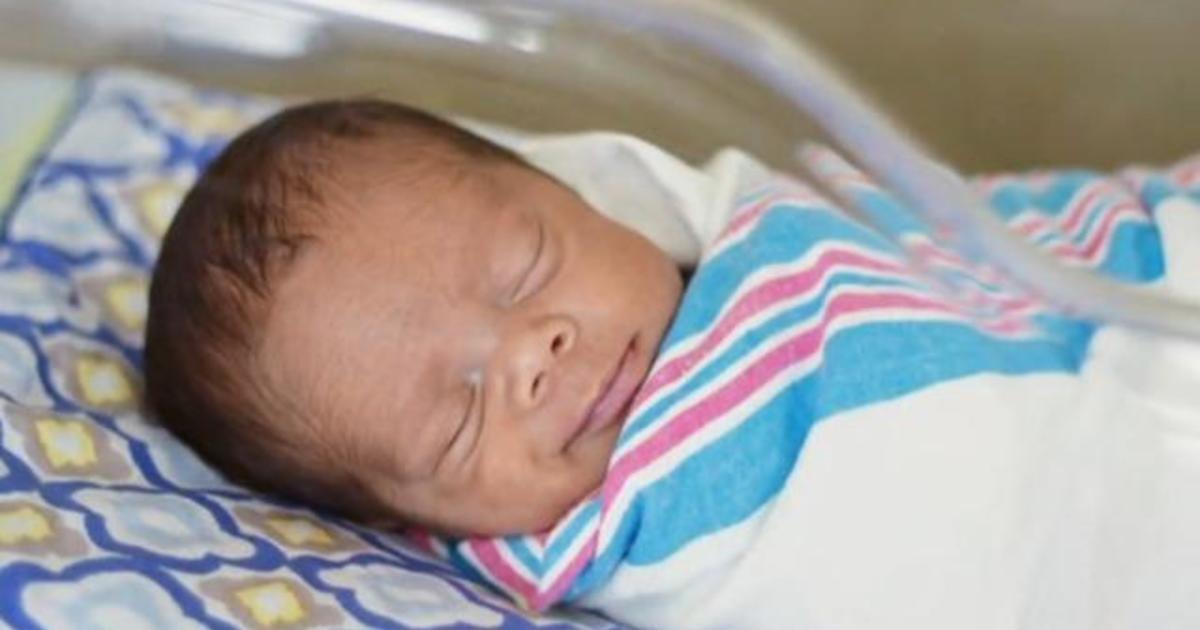
The number of births in the U.S. fell 4% in 2020, dropping to the lowest level since 1979 and continuing a multi-year trend of declining birth rates. That's according to a report published Wednesday by the Centers for Disease Control and Prevention's National Center for Health Statistics.
The agency reported 3,605,201 births in 2020, down from 3,747,540 during the year prior, based on provisional data from more than 99% of birth certificates issued during the year. 2020 marks the sixth consecutive year that the number of births in the U.S. has fallen, the agency reported. Meanwhile, provisional figures show the general fertility rate dropped to a record low in 2020, falling to 55.8 births per 1,000 women ages 15 to 44, down 4% from the previous year.
Among teenagers, many of whom shifted to remote learning due to the pandemic, birth rates fell precipitously, according to data released by the CDC. The birth rate for young women between the ages of 15 and 19 fell to a record low in 2020, dropping to 15.3 births per 1,000, an 8% decline from the year before. That continues a significant downward trend over the past two decades — down 75% from 1991, the most recent peak. The birth rate among girls between the ages of 10 and 14 was 0.2 births per 1,000 in 2020, unchanged since 2015.
The CDC also calculated that the total fertility rate, which reflects the average number of times a woman will give birth in her lifetime, declined to a record low in 2020, falling to 1,637.5 births per 1,000 women, down 4% from 2019. That's considerably lower than what the agency referred to as "replacement" levels, or the rate necessary for a generation to replace itself, which the CDC said was about 2,100 births per 1,000 women. According to the CDC, the total fertility rate has generally been below replacement levels since 1971, and "consistently" below that level since 2007.
Some experts have sounded the alarm on declining birth rates and what this will mean for the U.S. economy in the years to come. In a recent interview with "CBS This Morning" co-host Tony Dokoupil, Dowell Myers, who studies demographics at the University of Southern California, called the phenomenon a "crisis."
"We need to have enough working-age people to carry the load of these seniors, who deserve their retirement, they deserve all their entitlements, and they're gonna live out another 30 years," he said. "Nobody in the history of the globe has had so many older people to deal with."
The pandemic could prove to exacerbate the decline. The Brookings Institution has predicted "a large, lasting baby bust" of at least 300,000 fewer children in 2021. Health departments in more than two dozen states provided records to CBS News, showing a 7% drop in births in December — nine months after the first lockdowns began. Phil Cohen, a sociologist at the University of Maryland, said December's drop was the biggest he's seen since the baby boom ended in 1964.
"We don't know if it's the beginning of a bigger decline over the whole next year or if it's just a shock from March," Cohen said in February. "But I'm more inclined based on history to think that all of next year is going to be very much down for births."
"low" - Google News
May 05, 2021 at 11:01AM
https://ift.tt/3vHi19I
Births fall to 42-year low in U.S., new CDC data shows - CBS News
"low" - Google News
https://ift.tt/2z1WHDx
Bagikan Berita Ini














0 Response to "Births fall to 42-year low in U.S., new CDC data shows - CBS News"
Post a Comment